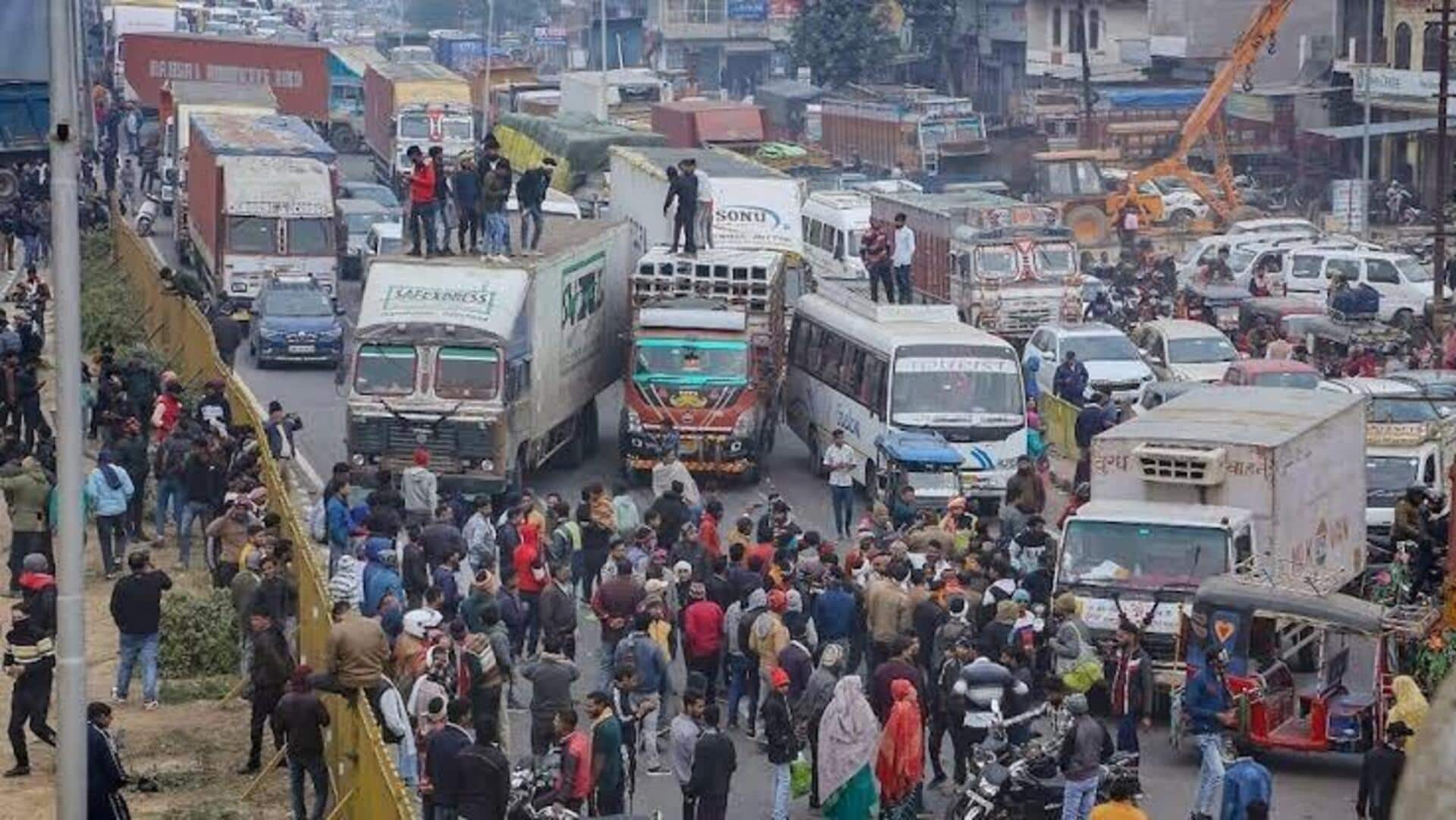
Chakka Jam: Centre begins talks with truck drivers, transport union
What's the story
In response to the ongoing drivers' strike, Union Home Secretary Ajay Bhalla on Tuesday convened a high-level meeting in New Delhi. It reportedly included representatives from the central government, transporters' union, and drivers. On Monday, truck, bus, and tanker drivers launched strikes in many states, mostly in northern and western India, to protest harsher penalties provided under the Bharatiya Nyaya Sanhita (BNS) law. The new criminal code has increased the jail term for hit-and-run cases to up to 10 years.
Context
Why does this story matter?
Last month, the BNS received President Droupadi Murmu's assent to replace the British-era Indian Penal Code (IPC). It states that drivers who cause severe accidents due to negligent driving and leave the scene without informing the police or other authorities can face up to 10 years imprisonment or an Rs. 7 lakh fine. This provision has caused discontent among drivers and truckers, resulting in protests in numerous states. They argue the new law will exacerbate drivers' shortage in the country.
What Next?
Impact of protests on fuel supply
Due to the ongoing protests, several major roads have been blocked as truckers and fuel suppliers continue their strike, mostly in northern and western states. This led to long lines at petrol stations as people panicked over potential fuel supply disruptions in various cities. Private bus operators and auto-rickshaw unions in Haryana also joined the strike. Notably, Bhalla's meeting is aimed at addressing the concerns of truckers and drivers regarding the stringent provisions in the new law on hit-and-run cases.
Violence
Violence during truckers' protest in Rajasthan
Meanwhile, the protest in Rajasthan against the new BNS resulted in violence as a mob burned a police vehicle and injured three officers. In Kekri, cops encountered resistance from truckers and locals while clearing the roads, including the Ajmer-Bhilwara Highway, as protesters also pelted stones on Monday. Additional forces were deployed to restore order and reopen the highway. Elsewhere, road blockades were seen as scores of vehicles stopped in the middle of roads and highways.
Details
Unsaid rule of blaming larger vehicles: Unions
Several transporters contended the new provisions would worsen the industry's manpower problem, leading to supply chain disruptions that could impact India's economy. Bal Malkit Singh of the All India Motor Transport Congress stated, "Currently, an unsaid rule of blaming the larger vehicles is blindly followed in the country, without considering scenarios of who is at fault." Drivers argued accidents are never intentional, but they could now face the risk of longer jail sentences, discouraging them from doing their jobs.